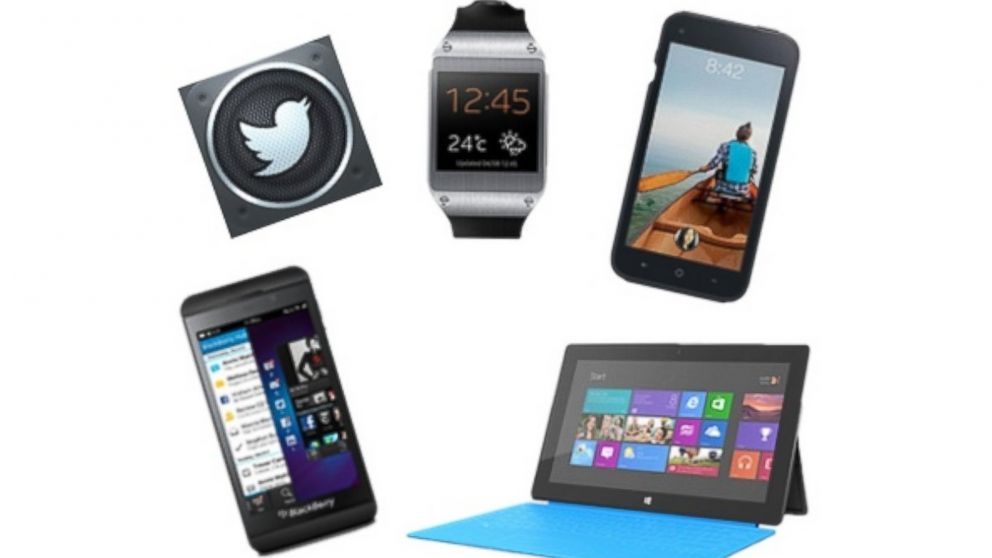The Biggest Tech Flops of 2013
It wasn't a good year for everyone in the tech industry.

Dec. 29, 2013 — -- intro: The iPhone 5s, Google Glass, the Moto X, the iPad Air, the explosion of SnapChat, Samsung's Galaxy S4, Twitter's IPO, Instagram Video. The year 2013 was a big one for the technology industry.
But not every company had a hit this year. Some products were plagued by poor user experience while others just didn't seem to resonate with the regular people. The following are some of the biggest tech losers of the past year.
quicklist: 1category: title: Facebook Homeurl:
text: In April, after months of rumors, Facebook finally released the "Facebook Phone." OK, so Facebook didn't exactly release a phone of its own, but it released Facebook Home, an app for Android that put Facebook at the center of the experience on an Android phone. It included new "chat head" features and placed photos from one's Newsfeed right on the lock screen.
However, the software and the first phone to run it -- the HTC First -- didn't exactly hit it out of the park. AT&T stopped carrying the phone just months after the release and the Home software received predominantly negative reviews, both by experts and users. Just try and find a positive review in the Google Play Store.
media: 18883594caption: related:
quicklist: 2category: title: Samsung Galaxy Gear url:
text: With rumors that Apple, Google and Microsoft are all working on their own smartwatches that provide notifications from your smartphone on your wrist, Samsung kicked off the trend in September with the Galaxy Gear.
However, it didn't take much time to see the product's weaknesses. With limited support for only the Galaxy Note 3, the watch had only a day of battery life, was oversized and was confusing to navigate. The reviews, including our own, were pretty harsh. According to some reports, Samsung has seen a spike in return rates of the watch.
media: 20156467caption: related:
quicklist: 3category: title: BlackBerry 10 and Z10url:
text: The year 2013 was supposed to mark BlackBerry's comeback. It even shed the company name RIM for a fresh start. In January it released BlackBerry 10, the next version of its operating system, and the BlackBerry Z10, the first phone to run the software. While the new interface was very touch-friendly and there were more apps than the previous platform, it didn't rival the functionality of the iPhone or Android phones.
Instead, 2013 became the year of BlackBerry's demise. In September the company reported a $1 billion loss and that it was laying off 40 percent of its employees. In the months after that, it would struggle with a decision to go private. As 2014 draws near, BlackBerry remains a public company with a new CEO and a very uncertain future.
media: 18353586caption: related:
quicklist: 4category: title: Twitter Musicurl:
text: Remember Twitter Music? Probably not. Even though Twitter successfully promoted its Twitter Music app with popular artists including Jason Mraz and Ne-Yo, it didn't catch on when it was released to the public in April. Just a few months later, in October, the New York Times reported that Twitter was planning to shut down its music app.
Despite the misstep, 2013 was a very successful year for Twitter. Its IPO went off without a hitch, it now has 200 million monthly active users and it has regularly added new features to its apps to improve the experience.
media: 18985691caption: related:
quicklist: 5category: title: Microsoft Surface RTurl:
text: Technically the Surface RT was released in 2012, but Microsoft endured the pain of the release in 2013. While the tablet was Microsoft's first foray into making its own tablet, it had some major shortcomings, including the inability to run older or traditional programs. The Surface Pro, which could run those programs, was heavier and didn't last longer than a few hours on a charge.
Microsoft took a $900 million write-down due to unsold Surface inventory and higher than expected related expenses for the tablets. Ultimately, it dropped the price on the Surface RT and Pro tablets and then replaced them with updated versions in October.
media: 17487870caption: related:




